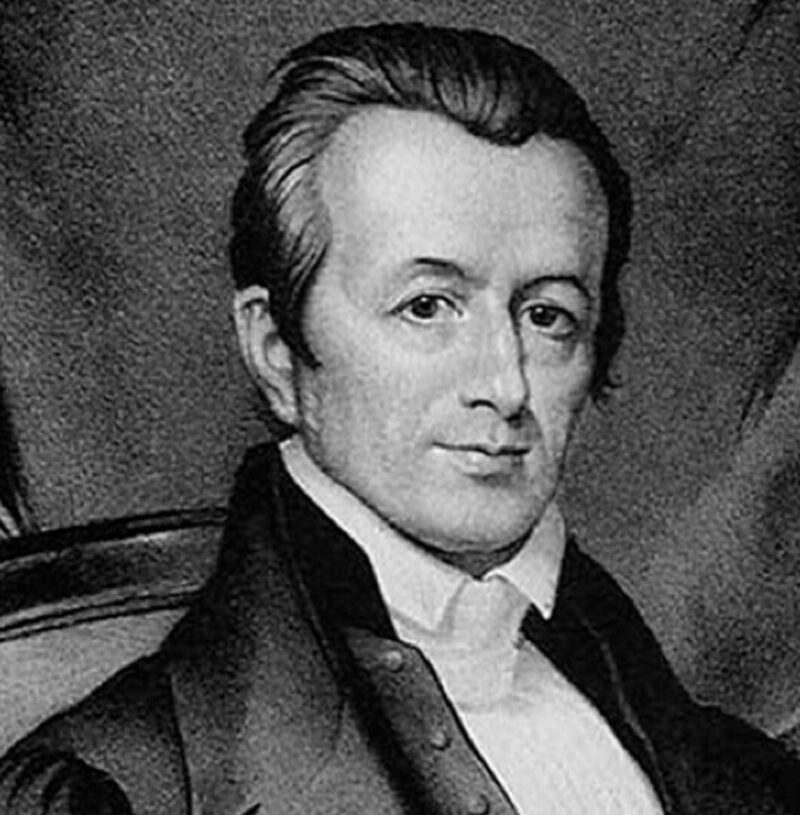
Today’s Leader of Faith
ADONIRAM JUDSON
Home Call : 12 April 1850
Trailblazing Missionary, Congregationalist, Evangelist, Church Planter, Bible Translator.
Adoniram Judson (1788–1850) was an American Baptist missionary who played a crucial role in bringing Christianity to Burma (now Myanmar). He was among the first Protestant missionaries sent from North America to Asia. Initially part of the Brethren Mission, a student group, he read the Scriptures while on his way to India and became convinced that a believer should be baptized as a testimony of faith. Upon arriving in India, he and his wife were baptized before traveling to Burma, where they established the first Baptist mission. His co-missionary, Luther Rice, was also convinced by him and was baptized. Due to health issues, Rice returned to America and began advocating for missions there, which led to the formation of the Triennial Convention in 1814, the first national Baptist missionary organization in the U.S. Judson established several Baptist churches in Burma and translated the Bible into Burmese. His work laid the foundation for Christianity in Burma, and his perseverance despite immense hardships continues to inspire generations of missionaries. His dedication also contributed to the formation of the Karen Baptist Convention, which continues to thrive in Myanmar today.
Judson was born on August 9, 1788, in Malden, Massachusetts, to a Congregational minister. He graduated as valedictorian from Brown University at 19 but abandoned his childhood faith under the influence of Jacob Eames, a deist. However, Eames’ sudden death deeply shook him, leading him back to Christianity while studying at Andover Theological Seminary. In 1810, he joined “The Brethren,” a mission-focused student group, which helped establish America’s first missionary society. He felt called to Asia for missionary work and was appointed by the American Board of Commissioners for Foreign Missions. He married Ann Hasseltine on February 5, 1812, was ordained the next day, and sailed for Asia on February 19 aboard the Caravan with fellow missionaries.
The Judsons arrived in Calcutta on June 17, 1812. During the voyage, Judson studied baptism and concluded that believer’s baptism was biblically mandated. On September 6, 1812, he and his wife converted to the Baptist denomination and were baptized by William Ward in Calcutta. Due to British opposition to American missionaries, the Judsons were ordered to leave India. In July 1813, they moved to Burma, where Ann suffered a miscarriage en route. Judson offered his services to American Baptists. The Judsons faced immense difficulties upon arriving in Burma, where Buddhism was deeply entrenched, and missionary work was met with resistance. He dedicated himself to learning Burmese, spending years mastering the language. He built a zayat to engage with locals and baptized his first Burmese convert, Maung Naw, in 1819. There were 18 converts in 12 years, but Judson persisted on his mission without any disappointment. The first Anglo-Burmese War (1824–1826) disrupted their mission, leading to Judson’s 17-month imprisonment. Ann Judson, his wife, died in 1826 while he was exploring new mission fields. After his release, Judson expanded his work among the Karen people, a minority group with traditions that echoed biblical beliefs. He baptized Ko Tha Byu, a former bandit, who became a passionate evangelist among his people. Judson translated the Gospel of Matthew and later the entire New Testament. In 1834, he completed his 24-year-long work of translating the entire Bible into Burmese, marking a major milestone in his mission.
Due to a lung disease, Judson’s health declined after decades of intense missionary work. It was recommended by the doctors that he take a sea voyage, as fresh air might aid in his recovery. While traveling on a ship bound for the Isle of Bourbon, he ended his journey at sea at the age of 61. A memorial for Judson was erected on Burial Hill in Plymouth, Massachusetts. His life became an inspiration for generations of missionaries, and in his honour, many mission fields, organizations, and seminaries have been named after him.
— John Michael, Rajahmundry
